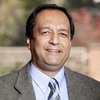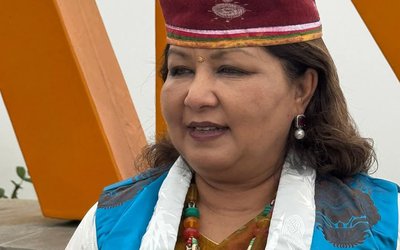The cause for ageing is the subject of a vigorous debate. Some people think it is just wear and tear while many think ageing is genetically determined. However, although a more modern concept, the genetic determination of ageing is not scientifically borne out. For example just because your parents lived to a ripe old age does not genetically give you an advantage. Only a measly six percent of how long you will live as compared to the average is explained by your parents’ longevity. Even genetically identical twins on the average have a difference of about 15 years in their life span. (In sharp contrast to this longevity issue, almost ninety per cent of how tall you are is determined by your parents’ height.)So the older concept of just wear and tear does seem to hold sway to a large extent. Our bodies accumulate harmful products like lipofucin and DNA mutations and numerous other microcellular problems over time, and just like an old car, we tend to physically fall apart.
Regardless of the cause of ageing, one of the most important problems in the elderly are falls, leading to orthopedic injuries like a hip fracture which may make them bed-ridden and cause complications. So preventing falls is vital in looking after the elderly. An important study in the elderly pointed to three primary risk factors for falls: poor balance, taking more than 4 medicines, and muscle weakness. In general elderly people even without any of these risk factors have a 12 per cent chance of falls in a year, but if they have all three risk factors then there is a 100 % chance of falls. So obviously proper vision and hearing check- ups will help. In addition some drugs like diuretics may cause dehydration and dizziness, and ensuring that the elderly are drinking adequate amounts of fluid will be useful. Proper nutrition (in terms of calories, proteins, and vitamins) to avoid muscle weakness will go a long way. Even simple measures like proper foot wear and dry floors will prevent falls.
Finally it is important to find a compassionate and caring doctor for the elderly.Unlike young patients, older patients will have 10 main complaints rather than just one or two, and the problems may have been around for 50 years.Young doctors who may have joined the medical profession for its celebrity image quickly learn that it is not glamorous taking care of older patients. In fact it is challenging. Onlydoctors with enormous patienceneed apply.

Buddha Basnyat MD
Buddha Basnyat, MD, MSc, FACP, FRCP, Director of the Oxford University Clinical Research Unit-Patan Academy of Health Sciences, Kathmandu.
- Altitude Sickness
- Feb 20, 2018
- Post-earthquake Nepal: The Way Forward
- Dec 13, 2015
- The Annapurna Sanctuary
- Nov 29, 2015
- Diarrhea at the Summit
- Nov 08, 2015
- Altitude Sickness ( AMS, HAPE, HACE)
- Oct 15, 2015















